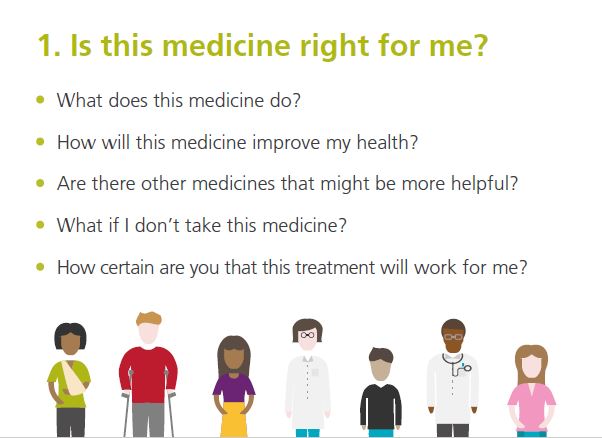It’s all over the media today……
Only about one third of the British public say they trust the evidence derived from medical research.
Confronted with media hype, claim versus counter-claim, a paucity of good quality accessible information and time-short GPs, and with few reliable tools to help them, patients are struggling to make sense of scientific evidence.
Indeed, is it any wonder that two-thirds of people told an Academy of Medical Sciences inquiry that they would rather trust the experience of family and friends?
This is just one of the findings pointed to in a new report by the Academy of Medical Sciences – ‘Enhancing the use of scientific evidence to judge the potential benefits and harms of medicines’ – which sets out to forestall a crisis of public confidence in medicine.
The salutary lesson of the Academy’s work over the last two years (prompted by debates about statins, Tamiflu and the HPV vaccine et al) is that medical research is great at producing new knowledge…..
…..It’s just generally hopeless at putting it in the hands of patients and families in the right way, the right place and at the right time so that they can make the right decision with their doctor. More accurately, it’s poor at putting tools into people’s hands to make sense of the evidence and reach such decisions.
It is a problem for which responsibility must be shared across the health research system – research funders, charities, universities, journals – if not health and social care more widely. Not to mention the media who report on new scientific evidence as it is produced.
In its characteristically understated but authoritative way the Academy points to a range of measure for overhauling current practice if the public are not to switch off entirely.
From making NHS Choices a central repository of information on the benefits and harms of medicines, to regulators improving the accessibility and readability of patient information leaflets (this one has caught the eye of the media in particular), and the introduction of a traffic light system for grading press releases announcing research findings. Working with patients and the public the Academy has also produced a set of questions to ask as part of conversations they have with their doctor about medicines. 
However, strengthening and improving the way society uses scientific evidence to make judgements about medicines, will also require fundamental changes ‘at source’ – in the way that scientific evidence is developed so that patient needs are considered in the design, analysis and evaluation of clinical studies and other experiments.
The report leads off with a recommendation that all research funders and researchers take steps to involve patients, carers and the public in research design, delivery and dissemination; to shift their perceptions of the role of the patient from that of a subject to that of a partner with an equal share in the process for producing evidence which has purpose and utility beyond an academic journal.
The good news behind this recommendation is that the UK is ahead of many other countries in involving patients and the public in decisions about research. From the recent appointment of the new heads of the Dementia Research Institute and UK Informatics Institute, to the work that NIHR and medical research charities such as Parkinson’s UK, Cancer Research UK and Arthritis Research UK have done to involve people in deciding what research to fund and how to do it.
One example of such work in the UK which is internationally influential is the adoption by many charities and patient groups of the James Lind Alliance (JLA) priority setting partnerships methodology to identify the top 10 research priorities in a particular condition or field as defined by patients, carers and health professionals. Around 100 such partnerships have been completed or are underway.
But we have some distance to go before these priorities are driving research funders and researchers in the way they should, and until outcomes that matter to patients are measured alongside those that are of interest to science. And recent campaigns such as AllTrials which is all about putting evidence into people’s hands suggest that there is still a good deal of kicking and struggling to happen on the part of the medical research community before it happens.
The Academy’s report may be a bitter pill to swallow for the medical research community. But the fact is that changing public attitudes will require collective action, with a good dose of public insight at its heart.
Pingback: Don’t talk to me (an evidence-based poem) – bellastarling